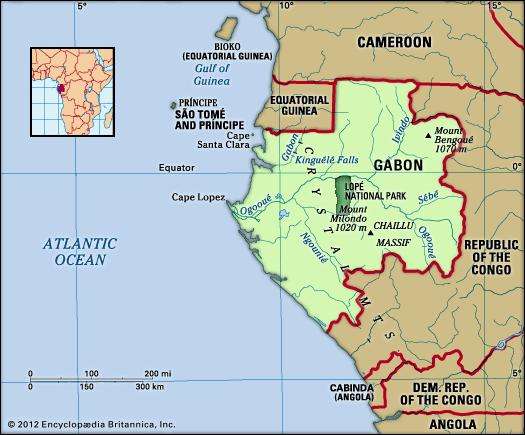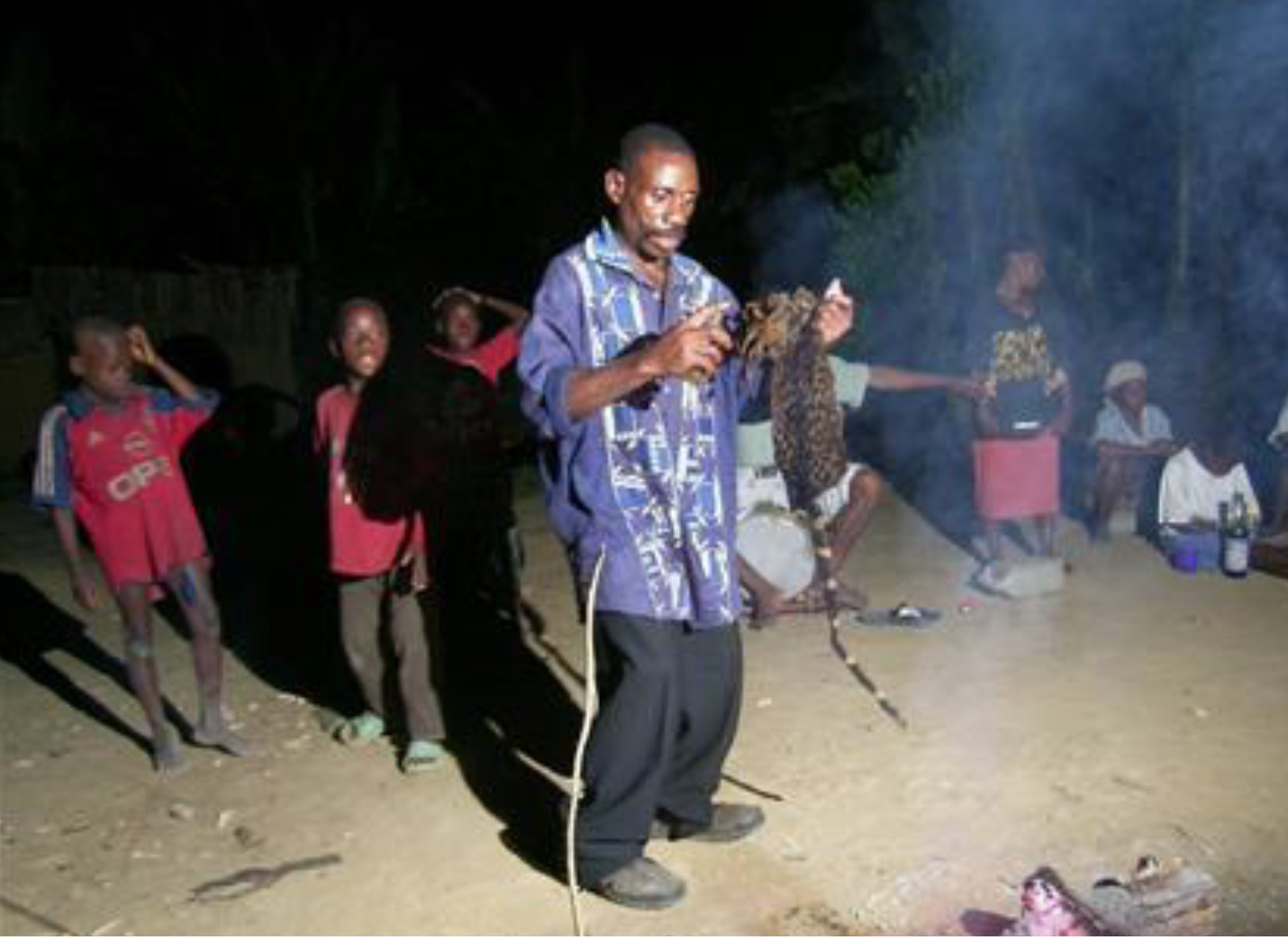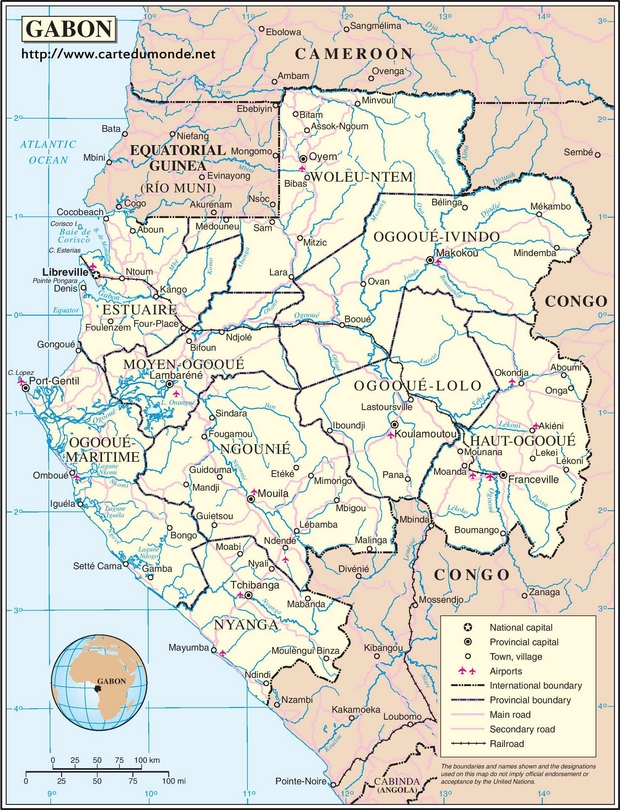As I stated earlier on this site (see my August 16, 2018 post), Gabon has a very bad reputation as ritual murders is concerned. Unlike in many other African countries, in Gabon there exists a very active grassroots organization fighting these ritualistic murders and the impunity that shields perpetrators and those who command these atrocious, criminal acts, from justice. The organization is called the Association for Fighting Ritualistic Crimes (ALCR). Its president, Jean-Elvis Ebang Ondo, recently said that his organization estimates that at least 50 ritualistic crimes, in a population of less than two million, occur each year. This means that on average every week a person is ritually murdered in this West African country. More on the good work of the ALCR in upcoming posts.
This week a positive report emerged. Two men were found guilty of a ritualistic crime committed in 2012 and sentenced to jail. One murderer received a life sentence, while his accomplice was will have to spend 12 years in prison. However, the ALCR in its reaction said that “the people who sponsored the murder have still not been arrested.” Read everything on this case in the article reproduced below. (webmaster FVDK)
Two jailed in Gabon over gruesome occult sacrifice
Published: January 11, 2019 – 20:54 GMT
Updated: January, 12 2019 – 17:44 GMT
By: Daily Mail Co UK / AFP

Two men have been arrested and jailed in Gabon for gunning down another man and slicing off his tongue, fingers and toes in a gruesome occult sacrifice
A court in Gabon has jailed two men accused of sacrificing a man and cutting out his organs for black magic rituals, press reports and campaigners said Friday.
Henry Bengone B’Evouna received a life sentence for gunning down Achille Obiang Ndong, while his accomplice, Gerard Mba Eyime, was jailed for 12 years for slicing off the victim’s tongue, fingers and toes, l’Union newspaper said.
The sentences were passed on Tuesday by an appeals court in Oyem in the north of the west African country.
Bengone B’Evouna had struck a deal “with a former local dignitary to provide human organs in exchange for the sum of 800,000 CFA francs,” about $1,400 or 1,200 euros, l’Union reported.
Both men admitted guilt for the crime committed in 2012, it said.
An advocacy group, the Association for Fighting Ritualistic Crimes (ALCR), which said it was providing support for the victim’s family, said “the people who sponsored” the murder “have still not been arrested.”
In Gabon and other parts of West Africa, organs are used as fetishes in magic rituals, “and often are taken from people while they are still alive,” said the organisation’s president, Jean-Elvis Ebang Ondo.
“Often, there is no prosecution for crimes of ritual killings,” he said.
“Behind them, there’s a whole network of sponsors — politicians and powerful businessmen, marabouts [witch doctors], people called ‘nganga’ who act as spotters and often are schoolchildren or close relatives, and those who carry out the killing.”
Dread of kidnapping for organ removal is common.
Ebang Ondo said his organisation estimated that at least 50 ritualistic crimes, in a population of less than two million, occurred each year.
Source: Two jailed in Gabon over gruesome occult sacrifice
Related article: Two jailed in Gabon over gruesome occult sacrifice
Source: Brinkwire, dated January 13, 2019



